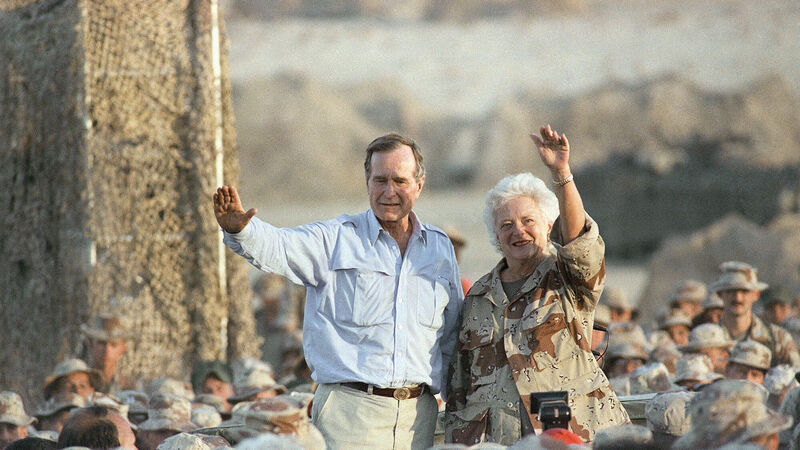State Papers 1990: Haughey tells Bush political change in Europe could bring about change to Irish border

President George H.W. Bush and first lady Barbara Bush wave to U.S. Marines during a Thanksgiving visit at the desert encampment in Saudi Arabia.Picture: AP Photo/Scott Applewhite
US president, George Bush, was told political changes in eastern Europe following the fall of the Iron Curtain indicated the possibility for changes to the border in Ireland during a meeting with the Taoiseach, Charles Haughey in 1990.
State records show the Fianna Fáil leader admitted it might be “wishful thinking” on his part but he believed political developments including the proposed reunification of Germany would have an impact on the situation in Northern Ireland.











